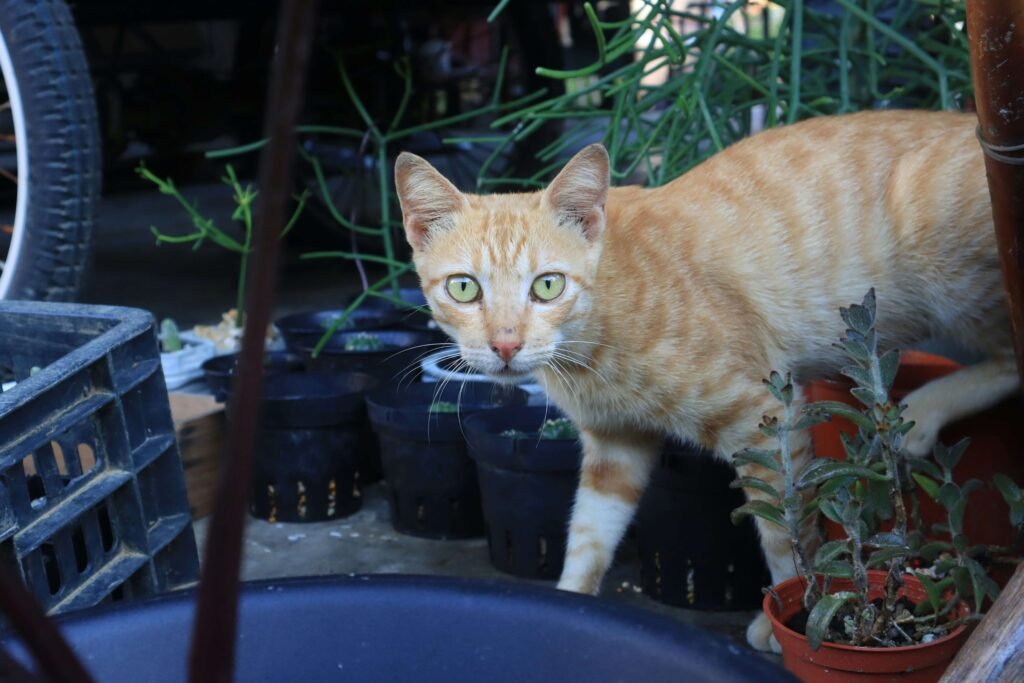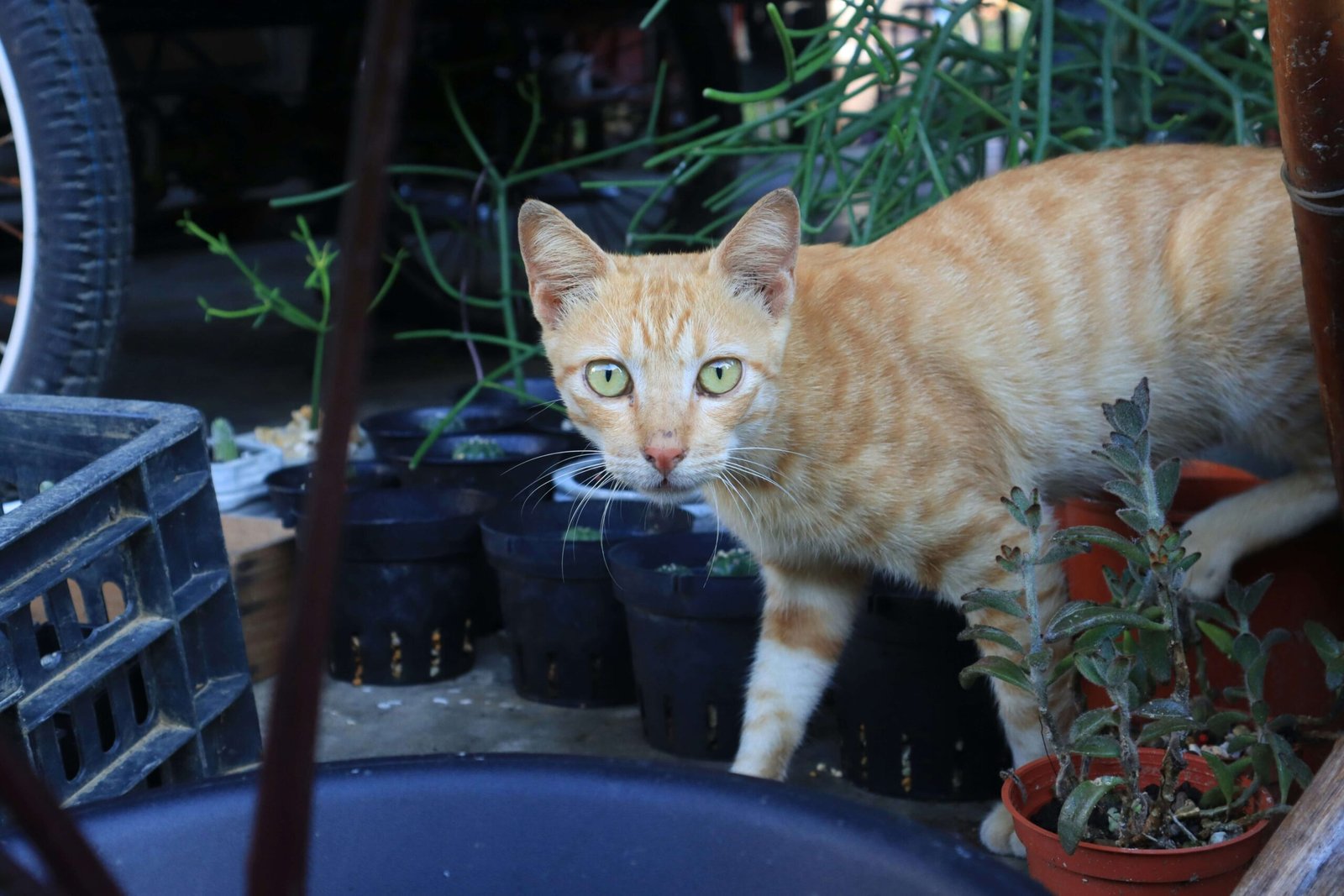Are Carnations Cat Safe? What You Need to Know
When it comes to our beloved feline companions, ensuring their safety is always a top priority. Whether you’re a seasoned cat owner or new to the world of pet parenthood, understanding which plants are safe for your furry friend is essential. One flower that often sparks curiosity is the carnation. These vibrant and fragrant blooms are a popular choice for bouquets and home decor, but are carnations cat safe? In this blog post, we’ll explore everything you need to know about carnations and their potential impact on your cat’s health. From toxicity levels to safe alternatives, we’ve got you covered so you can keep your home both beautiful and pet-friendly.
Understanding Carnations: A Quick Overview
Before diving into whether carnations are safe for cats, let’s take a moment to understand what these flowers are all about. Carnations, also known as Dianthus caryophyllus, are a classic floral choice admired for their ruffled petals and long-lasting blooms. Here’s a quick breakdown of key facts about carnations:
Carnations come in a variety of colors, including pink, red, white, and yellow, making them versatile for different occasions.
They are often used in bouquets, corsages, and decorative arrangements due to their vibrant appearance and pleasant fragrance.
Carnations symbolize love, fascination, and distinction, making them a popular gift for special events like weddings and anniversaries.
These flowers thrive in well-drained soil and require moderate sunlight, making them relatively easy to grow indoors or outdoors.
Despite their beauty, carnations contain certain compounds that may affect pets, particularly cats, if ingested.
Understanding these basics sets the stage for evaluating their safety around our furry friends. While carnations are visually appealing, it’s crucial to consider how they might interact with your household pets.
Potential Risks of Carnations for Cats
If you’re wondering whether carnations pose any risks to cats, the short answer is yes—but the level of danger is relatively mild compared to other toxic plants. To help you better assess the situation, here’s a detailed look at the potential risks associated with carnations:
Carnations contain saponins, natural compounds that can cause mild gastrointestinal upset in cats.
Symptoms of ingestion may include drooling, vomiting, or diarrhea, though these effects are typically not life-threatening.
The severity of symptoms depends on the amount of the plant consumed and the individual cat’s sensitivity.
Unlike highly toxic plants like lilies, carnations are considered only mildly toxic, meaning they’re less likely to cause severe harm.
Skin irritation or allergic reactions are rare but possible if your cat comes into direct contact with the plant sap.
While carnations aren’t among the most dangerous plants for cats, it’s still important to monitor your pet’s behavior if you suspect they’ve nibbled on one. When in doubt, consult your veterinarian for guidance.
Check this guide 👉Is Ranunculus Cat Safe? Best 7 Expert Tips!
Check this guide 👉Is the Cat Palm Safe for Cats? Best 7 Expert Tips!

Aspect | Details |
|---|---|
Toxicity Level | Mildly toxic; contains saponins |
Common Symptoms | Drooling, vomiting, diarrhea |
Severity of Reaction | Rarely life-threatening |
Safe Alternatives | Spider plants, Boston ferns, African violets |
Precautionary Measures | Keep out of reach; monitor curious cats |
How to Keep Your Cat Safe Around Carnations
If you decide to keep carnations in your home, there are several steps you can take to ensure your cat remains safe. Prevention is always better than dealing with potential issues later. Here’s how you can minimize risks:
Place carnations in areas that are inaccessible to your cat, such as high shelves or hanging baskets.
Use deterrent sprays designed to keep pets away from plants without harming them.
Train your cat to avoid certain areas by using positive reinforcement techniques like treats or praise.
Regularly check for signs of chewed leaves or petals to confirm your cat hasn’t been snacking on the flowers.
Consider planting pet-safe alternatives in your garden to redirect your cat’s attention away from potentially harmful plants.
By taking these precautions, you can enjoy the beauty of carnations while keeping your feline companion safe and healthy.
Pet-Safe Alternatives to Carnations
If you’re concerned about the potential risks of carnations, there are plenty of pet-safe plants you can choose instead. These alternatives allow you to decorate your space without compromising your cat’s well-being. Here are some excellent options:
Spider plants: Known for their air-purifying qualities, spider plants are non-toxic and easy to care for.
Boston ferns: These lush, green plants add a touch of elegance to any room and are completely safe for cats.
African violets: With their colorful blooms, African violets are a great way to brighten up your home without posing a threat to your pet.
Bamboo: This fast-growing plant is not only safe for cats but also adds a unique aesthetic to your decor.
Rosemary: A fragrant herb that doubles as a culinary ingredient, rosemary is both functional and pet-friendly.
Switching to these alternatives ensures your home remains both stylish and secure for your furry family members.
Signs Your Cat May Have Ingested Carnations
If you suspect your cat has come into contact with carnations, it’s important to watch for specific signs that may indicate ingestion. While these flowers are only mildly toxic, even minor symptoms shouldn’t be ignored. Here’s what to look out for:
Excessive drooling: This could indicate irritation in your cat’s mouth or digestive tract.
Vomiting: A common reaction to ingesting non-toxic but irritating substances.
Diarrhea: Gastrointestinal upset is a frequent symptom of plant ingestion.
Lethargy: If your cat seems unusually tired, it might be a sign of mild poisoning.
Pawing at the mouth: This behavior suggests discomfort or irritation from sap exposure.
If you notice any of these signs, it’s best to consult your veterinarian promptly. Early intervention can prevent more serious complications and ensure your cat recovers quickly.
Steps to Take if Your Cat Chews on a Carnation
Discovering that your cat has nibbled on a carnation can be alarming, but staying calm and taking immediate action is key. Here’s a step-by-step guide to help you handle the situation effectively:
Remove your cat from the area: Prevent further access to the plant to minimize additional ingestion.
Rinse their mouth: Use clean water to gently wash away any plant residue from their mouth or fur.
Monitor for symptoms: Keep an eye on your cat for any signs of distress or gastrointestinal issues.
Call your vet: Even if symptoms seem mild, professional advice can provide peace of mind.
Document the incident: Note how much of the plant was consumed and when it happened for future reference.
By acting swiftly and responsibly, you can mitigate potential risks and ensure your cat remains healthy and safe.
Benefits of Choosing Pet-Safe Plants Over Carnations
While carnations can add beauty to your home, opting for pet-safe plants offers numerous advantages for both you and your feline companion. Here’s why making the switch is worth considering:
Peace of mind: Knowing your plants are completely safe eliminates stress and worry about accidental ingestion.
Enhanced air quality: Many pet-safe plants, like spider plants and Boston ferns, are excellent natural air purifiers.
Variety of options: There’s a wide range of pet-friendly plants available, ensuring you’ll find something that suits your style.
Encourages creativity: Exploring alternative plants allows you to experiment with unique arrangements and decor ideas.
Strengthens the bond: Creating a pet-safe environment shows your cat they are a valued part of your household.
Choosing pet-safe plants not only protects your furry friend but also enriches your living space in meaningful ways.
Frequently Asked Questions About Carnations and Cats
Are carnations toxic to cats?
Yes, carnations are mildly toxic to cats due to the presence of saponins. However, they are not as dangerous as highly toxic plants like lilies.
What should I do if my cat eats a carnation?
Monitor your cat for symptoms like drooling, vomiting, or diarrhea. If these persist or worsen, contact your veterinarian immediately.
Can I keep carnations in my home if I have a cat?
Yes, but it’s important to place them out of reach and supervise your cat to prevent accidental ingestion.
Are there any safe flowers for cats?
Yes, some safe options include roses (without thorns), sunflowers, and orchids.
How can I tell if my cat has an allergic reaction to a plant?
Look for signs like excessive scratching, redness, or swelling. Consult a vet if you notice these symptoms.
Final Thoughts: Balancing Beauty and Safety
Creating a harmonious environment for both you and your cat doesn’t have to be complicated. While carnations are mildly toxic, they don’t pose a significant risk if proper precautions are taken. By understanding the potential dangers, exploring pet-safe alternatives, and staying vigilant, you can enjoy the beauty of flowers without compromising your cat’s well-being. Remember, a happy home is one where both humans and pets feel safe and loved. So go ahead—decorate with confidence and embrace the joy of coexisting with your feline friend!
Do Cats Have Taste Buds? Best 7 Expert Tips! – Discover how cats experience flavors and why their taste is so unique.
Do Dogs Have Taste Buds? Best 7 Expert Tips! – Discover how dogs experience taste, their preferences, and what it means for their diet and health.
Can Cats Taste Sweet? Best 7 Expert Tips! – Discover why cats can’t taste sweetness, how it affects their diet, and tips to keep them healthy and happy.
Can Dogs Taste Sweet? Best 7 Expert Tips! – Discover how dogs perceive sweetness, which foods are safe, and tips to manage their sweet cravings responsibly.





